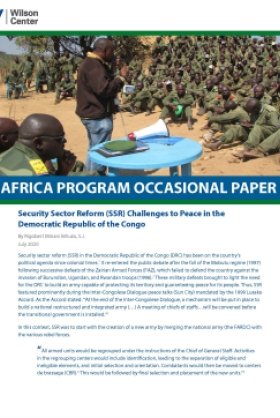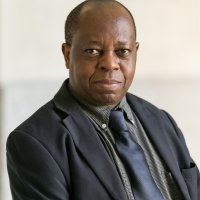Security Sector Reform (SSR) Challenges to Peace in the Democratic Republic of the Congo



Security sector reform (SSR) has been central to peacebuilding and conflict management in the Democratic Republic of the Congo (DRC) for decades. The 1999 Lusaka Accord, signed by the DRC government and backed by neighboring countries, established the Inter-Congolese Dialogue peace talks, and mandated reform of the army and police. Despite this, successful SSR has remained elusive for the DRC.
In this paper, Southern Voices Network for Peacebuilding and Africa Program Scholar Rigobert Minani Bihuzo, analyzes security sector reform in the DRC and its challenges. He examines how decades of failure to disarm, demobilize, reintegrate, reinsert, and repatriate the country’s combatants has undermined SSR, and ultimately, peace in the DRC. He also emphasizes the need to invest in SSR in addition to reforming national defense structures, highlighting this as a top priority in order to build sustainable peace, security, and development.


The Africa Program works to address the most critical issues facing Africa and US-Africa relations, build mutually beneficial US-Africa relations, and enhance knowledge and understanding about Africa in the United States. The Program achieves its mission through in-depth research and analyses, public discussion, working groups, and briefings that bring together policymakers, practitioners, and subject matter experts to analyze and offer practical options for tackling key challenges in Africa and in US-Africa relations. Read more
